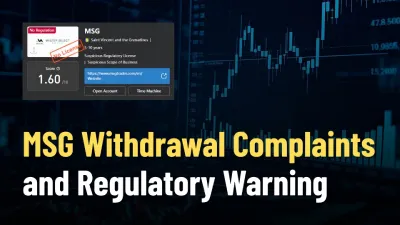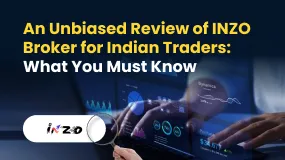简体中文
繁體中文
English
Pусский
日本語
ภาษาไทย
Tiếng Việt
Bahasa Indonesia
Español
हिन्दी
Filippiiniläinen
Français
Deutsch
Português
Türkçe
한국어
العربية
Earnings season holds the key as FTSE 100 continues bullish run back towards 8,000
Abstract:The FTSE 100 is closing in again on the 8,000-point milestone it breached for the first time ever earlier this year, with five weekly gains in a row close to putting the index in official bull market territory.

The FTSE 100 is closing in again on the 8,000-point milestone it breached for the first time ever earlier this year, with five weekly gains in a row close to putting the index in official bull market territory.
Now let's take a look at why this is happening and what will be needed for a new bull market to be achieved. Recall that, On 15 March, there was a market collapse larger than those following Russia's invasion of Ukraine and following Liz Truss's disastrous 'mini budget', with Jeremy Hunt's Budget overshadowed by the biggest fall since the start of the pandemic.
Having breached 8,000 exactly a month earlier, and notched an all-time intraday high of 8,047.06 the day after before a period of consolidation in the 7,900s, the Footsie fell almost 4% on the day of the Budget to close at 7,344.45, triggered by Credit Suisse joining Silicon Valley Bank in collapsing and sending paroxysms of worry around markets that a wider banking crisis could follow. But, after a wobbly couple of weeks, since then the FTSE 100 has been rebuilding. From the start of the week after, 20 March, on 7th June has risen 7.75%, with only four down-days in that time, to clamber back to less than 100 points from the 8K level again.
In order to constitute an 'official' bull market, the index will need to have risen at least 20% over a period of two months or more.
If London's blue-chip index keeps consistently gaining ground, we would need to wait until 22 May to tick the bull market box.
But, just as it did not wholly make sense at the time of the initial bullish run to 8,000 back at the start of the year, what's leading to the stock market confidence is a strange and far from convincing brew.
On the positive side, there has been some encouraging macroeconomic data, including UK consumer confidence recently reaching its highest point since before Russia's invasion of Ukraine and the latest PMI data showing the recovery in the private sector is gaining momentum. Furthermore, the apparent value on offer among the London Stock Market's ranks appears to be attracting no end of private equity wolves, with Sureserve (LON:SURS) and Network (LON:NETW) International today's marks, and approaches for THG (LON:THG) and John Wood (LON:WG), Dechra Pharmaceuticals (LON: DPH), Industrials REIT (LON:MLII), Unbound (LON:UBGU) and Hyve (LON:HYVE) in the past couple of weeks.
Particularly, these have been small and mid-caps, maybe indicating confidence is still tentative. Flipping the coin to the pessimistic side, UK retail sales yesterday showed a 0.9% decline, missing forecasts by a fair chalk, and a survey of UK consumers by UBS found nearly four in 10 people expect their financial situation to worsen in the next 12 months.
Inflation earlier this week also doggedly remained above 10%, with households remaining under pressure from continuing elevated energy and food prices.
Near term, the situation for consumers is expected to remain difficult as wages have remained behind inflation, meaning real incomes are falling further, while a housing market correction is still unfolding and financial conditions remain tight. There's also more US data pointing to a growing risk of a recession stateside.
After the strong run, the rush of earnings reports in London and New York in the next few weeks are likely to be key, with a deluge of FTSE names next week (including big banks Barclays (LON:BARC) and NatWest (LON: NWG) next week, Lloyds (LON:LLOY) and HSBC (LON:HSBA) the week after) and other consumer-facing giants (Unilever (LON:ULVR), Reckitt (LON:RKT), AstraZeneca (NASDAQ:AZN), Whitbread (LON:WTB)), along with the US megacap tech groups (Alphabet (NASDAQ:GOOGL), Microsoft (NASDAQ:MSFT), Meta (NASDAQ:META) and Amazon (NASDAQ:AMZN) all next week). Read more on Proactive Investors UK.

Disclaimer:
The views in this article only represent the author's personal views, and do not constitute investment advice on this platform. This platform does not guarantee the accuracy, completeness and timeliness of the information in the article, and will not be liable for any loss caused by the use of or reliance on the information in the article.
Read more

OmegaPro Review: Traders Flood Comment Sections with Withdrawal Denials & Scam Complaints
Has your deposit and withdrawal scenario worsened after the initial good experience at OmegaPro, a UK-based forex broker? Does the broker ask you to invest when withdrawing your funds? Did the broker officials trap you with their false promises of compound interest on your deposit? Have you found it impossible to transfer funds from your OmegaPro login to another broker’s account? Do you witness a lack of support when dealing with these unfortunate trading circumstances? These are no longer isolated complaints — they have allegedly become the reason for OmegaPro’s tarnished trust and reputation within the trading community. Read on as we share the OmegaPro review in this article.

Inzo Broker Review 2025: A Complete Look at Features, Costs and User Claims
Inzo Broker presents itself as a modern forex and CFD broker, started in 2021 and registered in Saint Vincent and the Grenadines. At first glance, it offers an attractive package for traders: access to the popular MetaTrader 5 (MT5) and cTrader platforms, different types of accounts for various budget levels, and a wide selection of assets to trade. These features are made to attract both new and experienced traders. However, a closer look shows a big difference between these advertised benefits and the real risks. The broker works under an offshore regulatory system, which gives limited protection to investors. More importantly, Inzo has collected many serious user complaints, especially about withdrawing funds and changing trading conditions unfairly. This mix of weak oversight and serious user claims creates a high-risk situation that potential clients must carefully think about. This review will break down these parts to give a clear, fact-based view.

MSG Withdrawal Complaints and Regulatory Warning
MSG (Master Select Group) withdrawals denied. Broker is unlicensed and unregulated. NFA license claim unverified.

An Unbiased Review of INZO Broker for Indian Traders: What You Must Know
INZO is a fairly new company in the online trading world. It started in 2021 and is registered in Saint Vincent and the Grenadines. Traders in India and around the world have noticed this broker because it offers access to popular trading platforms such as MetaTrader 5 (MT5) and cTrader. It also lets you trade many different things, such as foreign currencies, stocks, and digital currencies. The broker tries to be easy to use with features such as a low minimum deposit, which can be appealing to new traders. However, when you look more closely, the situation becomes more complicated. INZO operates as an offshore-regulated company, which brings certain risks that every trader needs to understand. Also, user feedback is very mixed - there are many serious complaints alongside some positive experiences. Read on this in-depth review of the broker.
WikiFX Broker
Latest News
BASF CEO: EU CO₂ Trading Is A "Destruction Mechanism" For European Industry
Is Fyntura a Regulated Broker? A Complete 2025 Broker Review
Zetradex Exposed: Withdrawal Denials, Account Freeze & Bonus Issues Hurt Traders
Is Forex Zone Trading Regulated and Licensed?
PINAKINE Broker India Review 2025: A Complete Guide to Safety and Services
Exness Restricted Countries List 2025 Explained
Is Uniglobe Markets Legit? A 2025 Simple Guide to Its Safety, Services, and User Warnings
Is Inzo Broker Safe or a Scam? An Evidence-Based Analysis for Traders
WikiEXPO Dubai 2025 “Welcome Party” Kicks Off Tonight!
He Trusted a WhatsApp Group and Lost RM659,000
Currency Calculator




